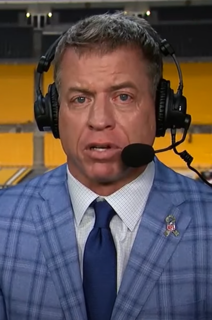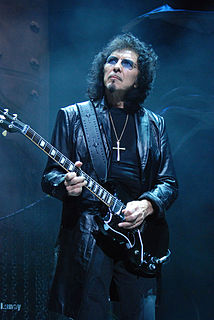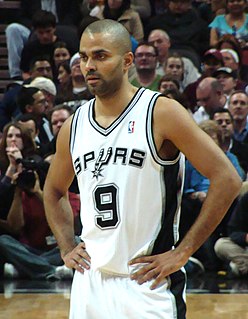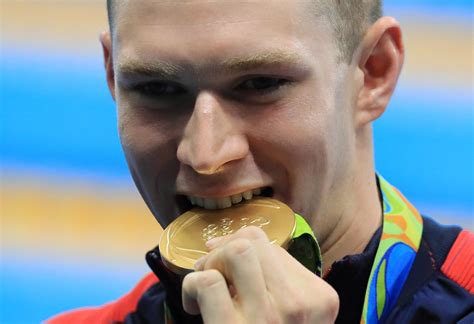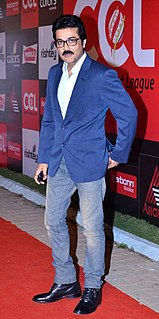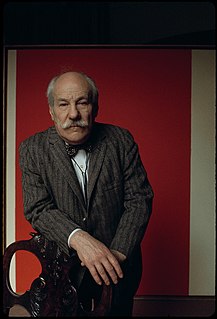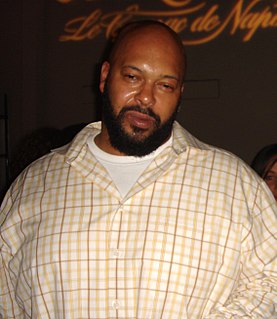A Quote by Troy Aikman
Whenever anybody has talked about concussions, they immediately talk about me and Steve Young.
Quote Topics
Related Quotes
We [me and Jennifer Salke] talked about the characters and different kinds of families and where are we today. We certainly pitched the gay couple, but we also talked about what it was like to be a single mother with a young daughter, what is it like to be a woman in your 50's who is completely starting over and dating again and having to go online to date again. We talked about the whole spectrum of the characters, but I don't think it ever came up about whether people are ready for it or not.
Sometimes that irrational commitment to principle is what society needs to survive. Whenever you talk about radicalism, whenever you talk about activism, whenever you talk about progressive activity, that sort of moves the measure of liberty in human society forward, makes us all enjoy a better standard of liberty, it typically starts out criminal. It typically starts out a little bit shaky, and rather radical. And that's irrational to put yourself up to do that.
